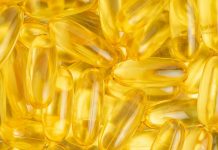
Sodium nitrite is a common ingredient used to preserve meat, recognizable as a white salt.
However, its utility in our kitchens is overshadowed by a grim reality that has unfolded over the recent years: its emerging use as a poison in suicides.
This relatively unknown threat has dramatically surged, with Ontario recording at least 28 deaths due to sodium nitrite poisoning between 1980 and 2020 – most of which occurred in the last two years.
The actual number is likely higher as comprehensive data regarding sodium nitrite poisoning is lacking in Canada, and sharing such information is not mandatory for healthcare workers.
Moreover, the US has also experienced a spike, with 47 poisonings recorded between 2015 and 2020, primarily occurring in the latter two years.
The Online Abyss: A Virtual Market for a Lethal Substance
Surprisingly, the recent upward trend in sodium nitrite poisonings has roots in the digital world.
Online forums and communities have been disseminating information on how to use sodium nitrite for suicide, unintentionally acting as a catalyst for the increase in its misuse.
In an alarming instance, platforms like Amazon became a hub for acquiring sodium nitrite, even though recent modifications have removed it from top search results due to lawsuits from affected families.
With other marketplaces like Etsy and eBay banning its sales outright, there’s a harrowing story of its pervasiveness online, and how it’s being misused as part of “suicide kits,” which are dreadfully accessible to vulnerable individuals.
Navigating through Regulatory Hurdles and Potential Solutions
Addressing sodium nitrite poisonings is complex due to the variable lethal dosages and its availability. Since sodium nitrite also has legitimate uses in the food industry, outright bans or restrictions present a challenging scenario.
Some countries have tried different approaches: the UK mandates sellers to report suspicious purchases of sodium nitrite, while Sri Lanka witnessed a 70% drop in suicide rates after imposing bans on certain pesticides.
Meanwhile, other ideas, like restricting sales to businesses or selling in non-lethal quantities, have their own set of drawbacks and challenges.
The problem’s complexity is evident, requiring a multi-faceted approach that goes beyond mere regulation of the substance.
The situation underscores a crucial dilemma – how to effectively balance the legitimate industrial use of sodium nitrite and the imperative to safeguard vulnerable individuals from its fatal misuse.
While legal restrictions may be a part of the solution, addressing the root causes, such as mental health and wellness support, also emerges as pivotal.
Health Canada, for instance, has chosen to focus on bolstering mental health and wellness as regulatory actions are deemed unsuitable due to sodium nitrite’s “many legitimate and necessary uses.”
In closing, it is evident that a multi-pronged approach, encompassing stricter regulations, robust mental health frameworks, and perhaps technological interventions to curb online sales and information dissemination, might be the pathway to mitigating this emerging public health crisis.
Understanding and addressing the sodium nitrite issue asks for an intricate blend of empathy, stringent oversight, and societal support to safeguard those on the precipice, offering them a hand back from the abyss.
Follow us on Twitter for more articles about this topic.
Copyright © 2023 Scientific Diet. All rights reserved.








